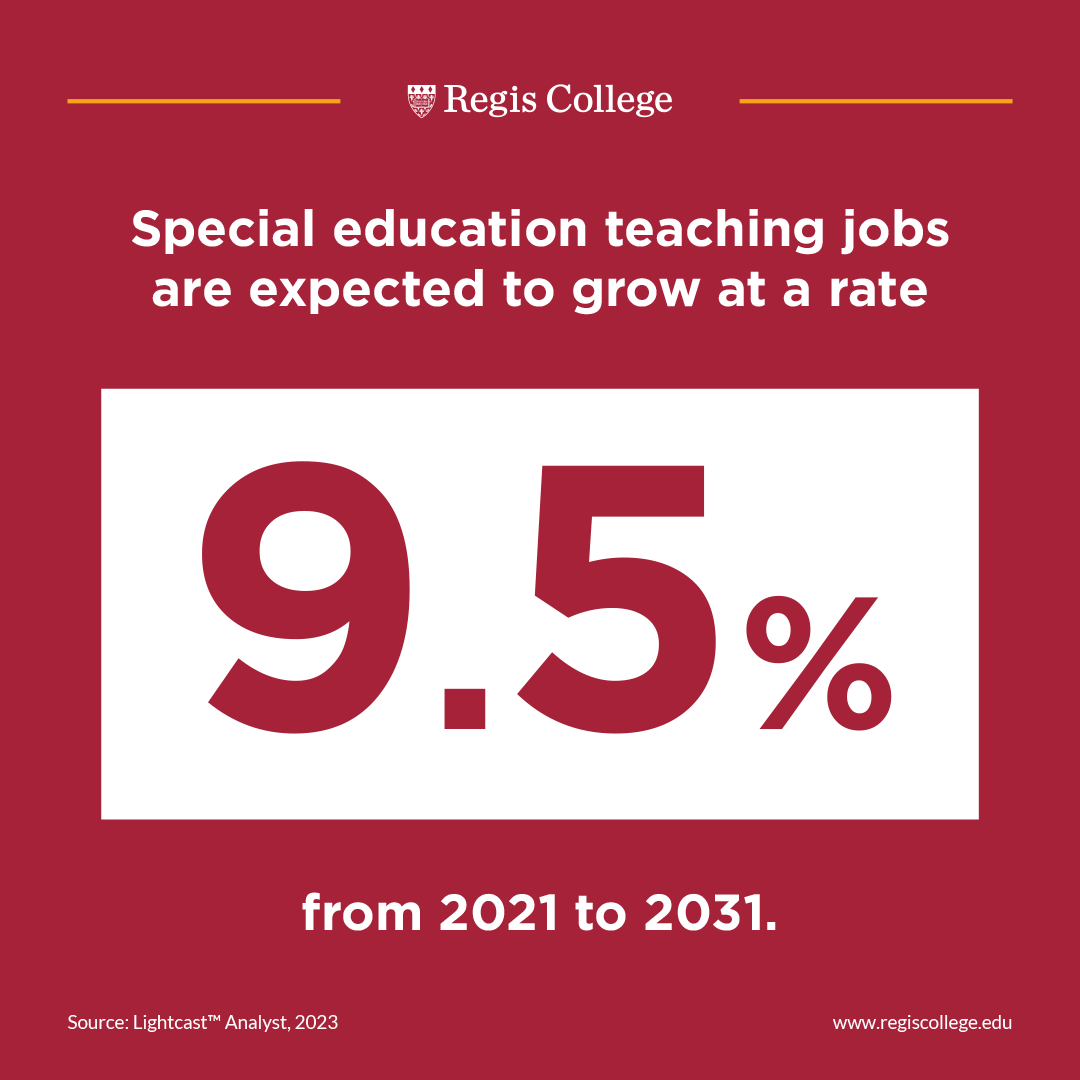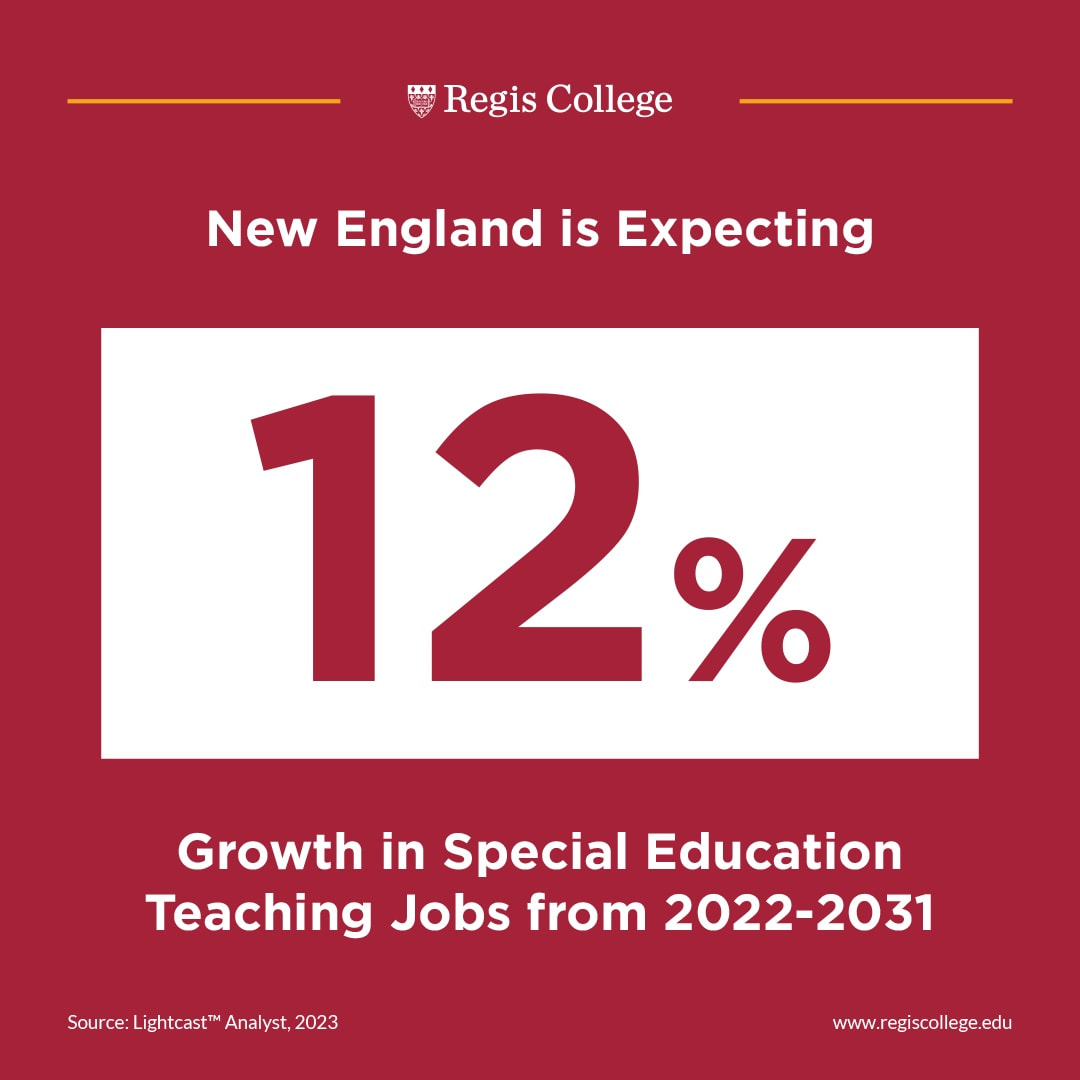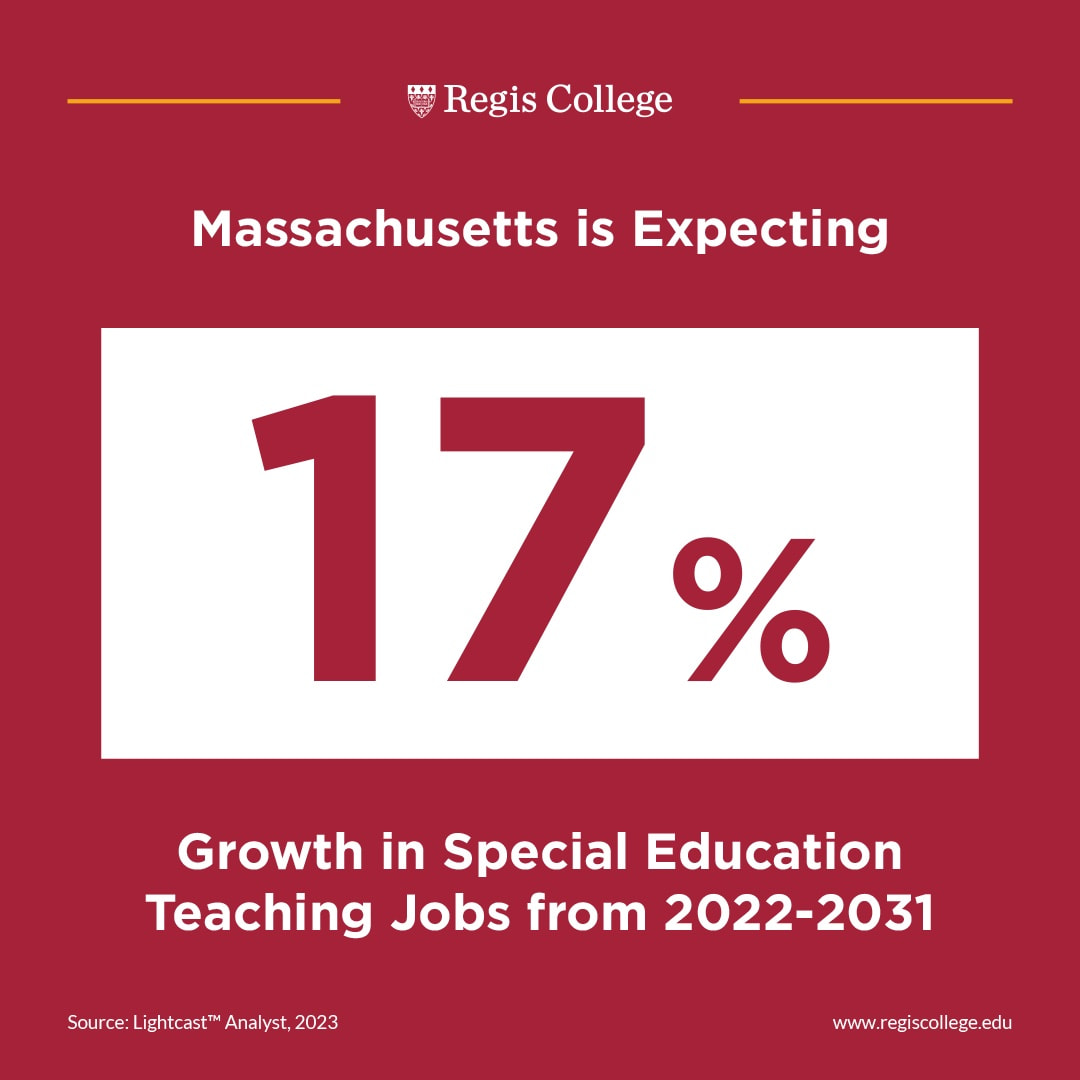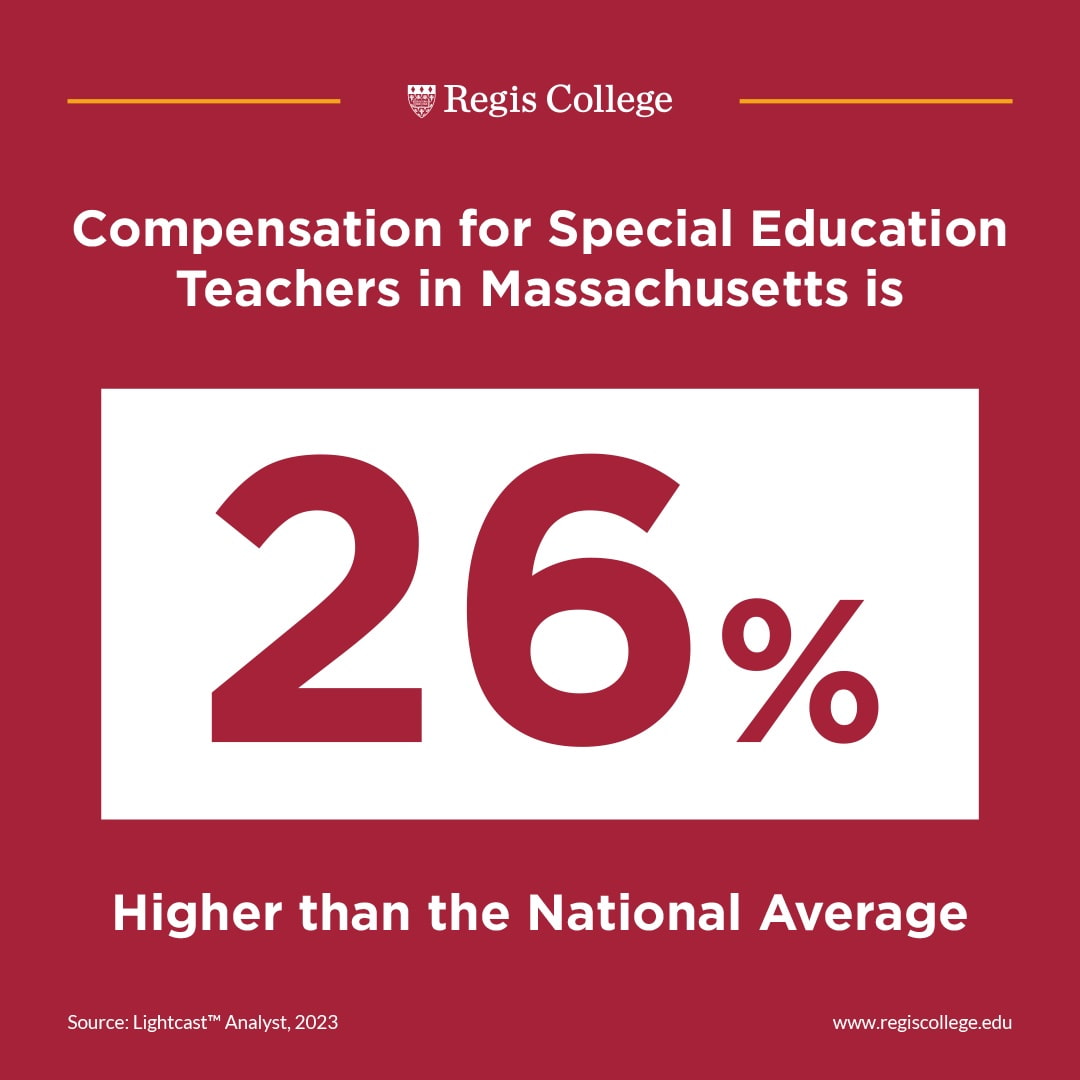When considering a career path, job security is often a top concern. People want to choose a field with a high demand for workers to ensure a greater likelihood of finding employment quickly as well as long-term job security.
Fortunately, there's an abundance of job openings in teaching special education. As a result, those who are interested in becoming special education teachers are likely to find employment with relative ease.
Here's an overview of the demand for special education teachers, as well as how you can take advantage of this demand.
Today’s Demand for Special Education Teachers
Special education teachers play a crucial role in today’s U.S. education system, but one of the primary factors impacting the current demand is the existing shortage of educators.
In the United States, nearly every state has reported a shortage of special education teachers, while approximately half of schools struggle with finding qualified special education teachers.
“There's a teacher shortage in general, but we really need to make sure that students with learning differences have the extra support they need,” says Priscilla Boerger, program director of Regis College’s Master’s in Teaching Special Education.
Luckily our analysis of job postings data shows that the number of special education teaching positions will increase over the coming years, with an estimated 9.5 percent projected growth rate between 2021 and 3031.

However, it's important to note that this growth rate can fluctuate depending on location factors like state and region.
Job Growth in New England
The New England region has a high demand for special education teachers. According to our analysis of job postings data, openings for these positions are expected to increase by 12 percent between 2022 and 2031 in the region.

However, it's important to note that job growth for special education positions vary significantly across New England states. Here is a closer look at the expected job growth rates for special education teacher positions in each New England state—ranked from highest to lowest:
- Massachusetts: 17 percent
- Vermont: 14 percent
- Connecticut: 10 percent
- Rhode Island: 8 percent
- Maine: 3 percent
- New Hampshire: 1 percent
While this is promising to prospective special education teachers in the New England area, our analysis of occupation data also indicates that the number of hires per month is not keeping up with the demand of job postings. In 2022, there were around 29,426 special education teaching positions posted in New England, only 9,970 of which were filled.
This is problematic, since the number of students requiring special education services is on the rise, with 14 percent of students reporting a need for this type of support. As a result, the demand for special education teachers is expected to continue to increase.
Job Growth in Massachusetts
If you’re interested in working in a state with higher-than-average demand, Massachusetts is a great option.
According to our analysis of job postings data, there's been a decline in special education teaching jobs in Massachusetts since 2015. However, this trend is expected to reverse over the next 10 years, with an anticipated 17 percent growth in job openings from 2022 to 2031.

Possibly as a result of this high demand, Massachusetts’s compensation for special education teachers is also 26 percent higher than the national average. “Districts are so desperate for these teachers that an increase in salary just could be something that they use as a strategy to recruit,” explains Boerger.

The Pathway to Becoming a Special Education Teacher
If you're eager to take advantage of the growing demand for special education teachers and want to make a positive impact on the lives of children with learning differences, here's an overview of the steps you'll need to take.
1. Earn a Bachelor’s Degree
One of the first steps in any position is to earn a relevant bachelor's degree. You should earn your degree in an education-related field, such as:
- Education
- Psychology
- Sociology
If you've already completed a degree, however, and are hoping to change careers, some advanced education programs, such as Regis College's Master's in Teaching Special Education, are designed specifically with career changers in mind.
2. Get a Teaching Certificate
Once you've obtained your degree, the next step is to earn your teaching certificate. It's important to research the state-specific requirements you'll need to complete in order to earn this certificate.
For example, in Massachusetts, the requirements to become a certified teacher are:
- Earning a bachelor's degree
- Completing a licensure application
- Paying a licensure fee
- Passing the Communication and Literacy Skills, as well as the Foundations of Reading Massachusetts Test for Educator Licensure (MTEL) exams
3. Gain Teaching Experience
Once you've earned your certificate, try to find some opportunities to gain teaching experience. Many schools hiring special education teachers require experience before accepting applicants.
Some positions that can bulk up your resume include:
- Teacher's assistant
- Volunteering positions
- Substitute teaching
If you're unable to find teaching experience, try to find other ways to work with children with learning differences in alternative settings—such as a daycare. Remember, any experience is better than none.
4. Complete a Master’s Degree Program
The next step to becoming a special education teacher is completing a master's degree program in teaching, such as Regis College's Master's in Teaching Special Education.
"In Massachusetts, teachers have to get their master's degree within five years of teaching," explains Boerger.
Since Massachusetts is such a high-demand state, offering a higher-than-average salary, it’s more important than ever to stand out by earning a master’s degree.
5. Get Certified in Teaching Special Education
Following completion of a state-approved master's degree, you'll be eligible to obtain your certification in teaching special education. In Massachusetts, this requires you to complete the relevant MTEL exams.
If you're seeking certification in a different state, make sure you familiarize yourself with its specific requirements.
6. Apply for a Position
The final step is applying for positions. Due to the demand for special education teachers, you likely won't find this step very challenging. However, it's important to ensure you're finding the right job for you.
It's no secret that one of the biggest reasons for today’s teacher shortage is burnout in these roles. For this reason, it's critical to ensure you're choosing a position that supports you while you're helping this vulnerable population of students.
According to Boerger, it's important to ask the following questions during your interviews:
- What resources are there to support me/my mental health?
- What professional development opportunities do you offer?
- How do you support teachers?
- Is there a lead teacher?
- Are teachers grouped in buildings?
- Are there grade-level meetings where teachers can support one another?
In addition, Boerger advises that prospective special education teachers inquire about the teacher to student ratio. “That will be key in understanding if a school has the resources for smaller-sized classrooms or if they don't.”
7. Take Steps to Prevent Burnout
Even when you're supported by your employers, it can be easy to get discouraged or feel burnt out in this position. For this reason, it's important to make sure you're constantly taking steps to prevent it.
“We're quick to call out burnout, but we’re slower to address it,” says Boerger. “Try to remember that you went into the field to have an impact on these kids. Step back and look at what's happening, what's causing your burnout, and how you can change that.”
Take Advantage of the Demand for Special Education Teachers
If you're ready to become a special education teacher and address the national shortage we’re facing today, you'll want to make sure you find a state-approved master's program that equips you with the skills and knowledge to work with this student population.
Regis College's Master's in Teaching Special Education is an excellent option that provides you with the tools and education you need to obtain licensure in this field.




